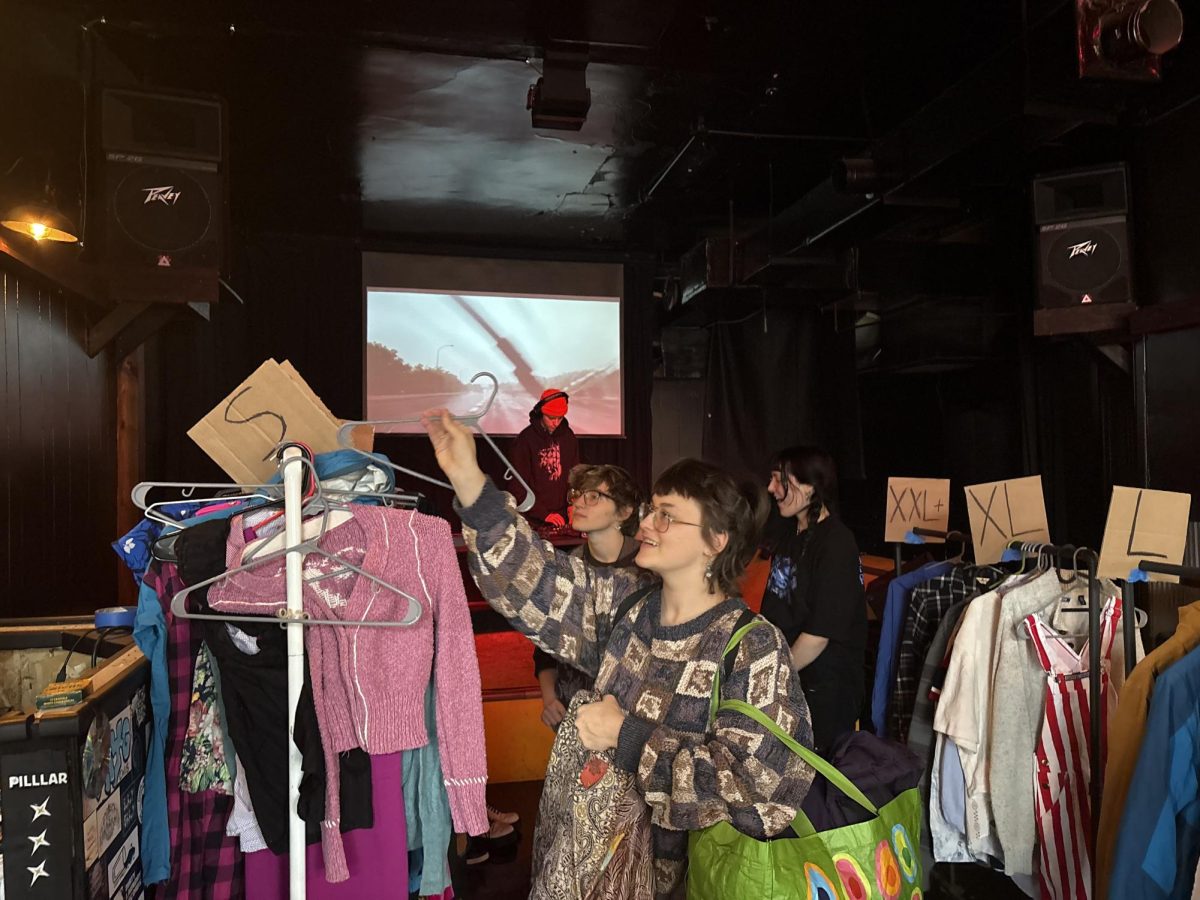ABy Beth Nawrocki  n intimate dwelling space. A place of solace and sanctuary. A necessity of life. One’s home not only provides protection and comfort but is a symbol of stability and worth. Playwright Dwight Hobbes elucidates the struggle to maintain control in a seemingly helpless situation: homelessness. Directed by Dipankar Mukherjee, and presented by Pangea World Theatre, “Shelter” is a gritty look at the Minneapolis housing system through the eyes of three individuals who have very different ideas of how to live, both on the streets and for the future.
n intimate dwelling space. A place of solace and sanctuary. A necessity of life. One’s home not only provides protection and comfort but is a symbol of stability and worth. Playwright Dwight Hobbes elucidates the struggle to maintain control in a seemingly helpless situation: homelessness. Directed by Dipankar Mukherjee, and presented by Pangea World Theatre, “Shelter” is a gritty look at the Minneapolis housing system through the eyes of three individuals who have very different ideas of how to live, both on the streets and for the future.
The three-person cast – Damon James, André Samples and Constance Anderson – creates a tension between complacency with the current condition and dreams of rising above the poverty line. This is a tension that Hobbes knows very well. Hobbes, once homeless himself, and Mukherjee highlight the stereotypes and stigmas of maintaining a life without a roof over one’s head.
James’ portrayal of Truck is multi-layered and by far the best performance of the three. He is the “businessman,” trafficking in crack and prostitution, living at The Drake, an actual Minneapolis hotel on 10th Street that was converted into a shelter. Truck lives with Anjinette, his girlfriend, whom he bullies into working the streets in exchange for a supply of crack and the safety of his ownership. His control is both believable and frightening. Conversely, his disinterest in the formalities normally adhered to by three individuals living in the same room provides comic relief. He maintains dominance over both Anderson’s Anjinette and Samples’ Keith. That control is a profound saving grace for the production.
Anderson’s performance is too tentative, as if she is trying to remember her lines before she says them. At times she exudes a powerful confidence, but it is often muzzled by an uncomfortable uncertainty. However, it is through Anjinette’s dialogue that Hobbes cleverly exposes the local political culture. Anjinette chastises Keith for attempting to get custody of his son: “This is Minnesota, if you haven’t heard. It is a woman’s state.” Theater newcomer André Samples, like Anderson, is a bit unconvincing in his portrayal of goal-oriented ex-crack addict Keith. He too contributes some uncomfortable and illogical breaks in dialogue.
The simple and unchanging set combines exposed wall boards – used to dry laundry and diminish any feelings of privacy – with unkempt beds and a dusty boudoir to encircle the ever-present crack “measuring table” at the stage’s center. The set invisibly extends beyond the walls of The Drake and into other “spots” – other Minneapolis shelters between which the homeless are often transferred. The “spot” most in demand by the characters is a newer development run by a Catholic woman, calling to mind Minneapolis’ Mary Jo Copeland, director of Sharing and Caring Hands.
Although there are periodic problems with dialogue and timing, Mukherjee creates a solid platform for debate by making the subject matter of homelessness intimate through the strong script. This is illustrated when Truck confronts Keith and takes him temporarily hostage in his own room. “Everyone is hostage to the life Ö you ain’t special, but in the cage with the rest of us!”
“Shelter” plays through April 13 at the Mixed Blood Theatre, (612) 338-6131.







